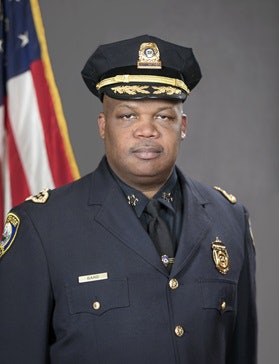In announcing its new vice president for public safety, Johns Hopkins University signaled that it plans to move forward with creating its own private police force — a decision that has been hotly debated, reports The Baltimore Sun.
 Dr. Branville Bard Jr.
Dr. Branville Bard Jr.Massachusetts police commissioner Dr. Branville Bard Jr. will take up the position on Aug. 30, announced the university, which added that he will also “play a leading role in the development and implementation of the Johns Hopkins Police Department.”
According to The Sun, Bard’s appointment is the university’s first move toward creating a private police force in a year after officials halted plans last summer amid the nationwide protests against police brutality. Yet, prior to 2020, student activists, faculty members and lawmakers had already been protesting the creation of a private university police force, including a monthlong sit-in at the university’s main administration building in 2019.
While protesters fear that students of color will be discriminated against by a private police force, university officials say the force is necessary to protect students “in a city with high rates of violent crime,” writes The Sun.
Touching on protestors’ concerns, Hopkins administrators described Bard as an “effective, community-oriented law enforcement professional and as an outspoken advocate for social justice, racial equity and police reform.” They added that Bard has lectured on racial profiling in the past and published his dissertation, titled “Racial Profiling: Towards Simplicity and Eradication,” on the subject.



















